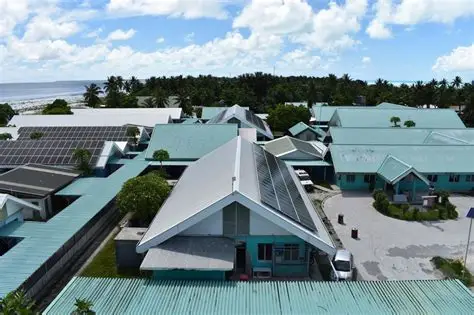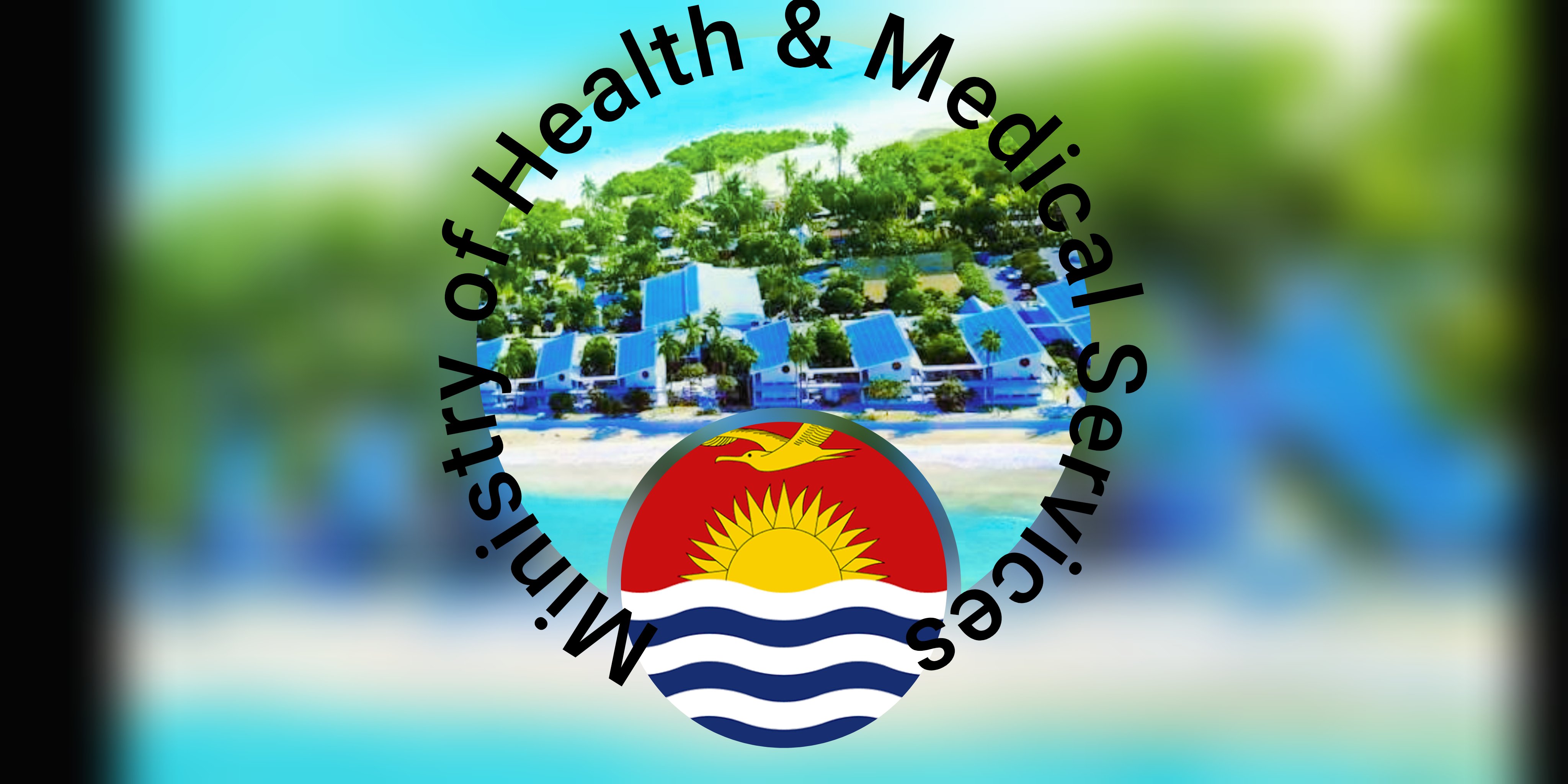Depart image

Ministry of Health and Medical Services (MHMS) – Kiribati
The Ministry of Health and Medical Services in Kiribati is responsible for providing comprehensive health services to the people of Kiribati, focusing on improving the health and well-being of the population through preventive, curative, and public health programs. The Ministry aims to address both the medical needs and the broader health issues related to the unique challenges of an island nation, such as limited resources, climate change, and infectious diseases.
Key Departments/Sections within the Ministry:
- Public Health Department
- Function: This department focuses on disease prevention, health education, and health promotion across the country. It works on controlling communicable diseases (like malaria, tuberculosis, and dengue) and managing chronic diseases (like diabetes and hypertension). Public health activities also include immunization programs and promoting safe water, sanitation, and hygiene practices.
- Initiatives: Health campaigns, health screening programs, and the promotion of healthy lifestyles.
- Medical Services Department
- Function: This department provides clinical health services to the population, including primary, secondary, and tertiary health care. The department oversees the network of health centers, hospitals, and clinics across the islands, ensuring that medical personnel are adequately trained and equipped.
- Services: It includes general medical care, maternal and child health, emergency services, and specialized care (e.g., surgery and emergency medicine).
- Health Information & Statistics Department
- Function: The Health Information department is responsible for collecting, analyzing, and reporting on health data. This includes vital health statistics, disease prevalence, and health outcomes, helping policymakers make informed decisions.
- Services: Managing health databases, conducting surveys, and creating public health reports.
- Pharmaceutical Services
- Function: This department ensures that essential medicines and medical supplies are available in all health facilities. It also oversees the management of pharmaceuticals, ensuring that medicine is safe, effective, and properly distributed across the islands.
- Responsibilities: Drug procurement, distribution, and managing pharmaceutical logistics.
- Environmental Health Department
- Function: This section addresses the health risks associated with the environment, focusing on waste management, water quality, air pollution, and food safety. Given Kiribati’s vulnerability to climate change, the department also works on adapting health services to environmental challenges.
- Programs: Clean water projects, waste disposal systems, and disease vector control.
- Nutrition Department
- Function: With concerns about malnutrition, especially among children, pregnant women, and the elderly, the Nutrition Department focuses on improving the nutritional status of the population.
- Services: Nutritional assessments, public education campaigns on healthy eating, and food security programs.
- Human Resources for Health
- Function: This department focuses on training and managing the healthcare workforce. It addresses the recruitment, retention, and professional development of medical staff, including doctors, nurses, and health technicians, ensuring that they are prepared to handle the health needs of the population.
- Programs: Training programs, workforce planning, and capacity-building initiatives.
Strategic Goals and Challenges
- Strategic Goals: The Ministry is working to improve health service delivery, reduce the burden of disease, address the impacts of climate change on health, and enhance health equity, ensuring that all communities, including those in remote outer islands, have access to adequate health services.
- Challenges: Kiribati faces unique challenges, such as limited infrastructure, a shortage of healthcare professionals, and the impact of climate change on health (e.g., rising sea levels and extreme weather events). Access to healthcare in outer islands is also a significant concern, as people often have to travel long distances to reach a medical facility.

